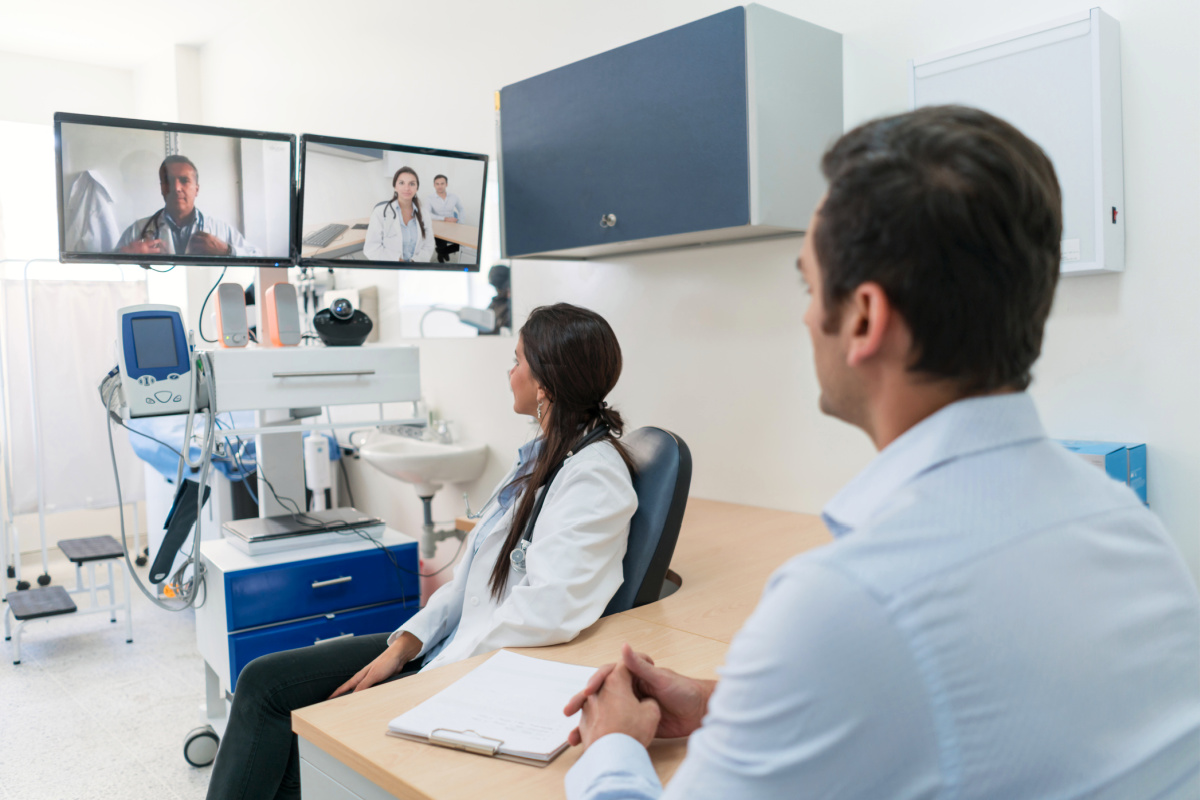Most telemedicine visits are little more than visual addendums to standard phone call encounters. Still, they add a face to a voice. One can pick up on body language. And they do enable limited examinations. For example, does the patient have a tremor? If so, what type? How would you characterize the patient’s gait? Is there a Bell’s palsy? And so on.
But you cannot auscultate the patient’s chest or lungs. You cannot palpate for a mass. There will be no Pap smear.
A Medical Justice member recently asked about an upcoming telemedicine visit for a prospective patient contemplating breast augmentation surgery. He noted that he will be visually assessing how the patient looks in the context of her goals. Does he need a chaperone for some or all of the telemedicine visit?
A chaperone serves two roles. To make the patient comfortable during an examination of intimate body parts. And to protect the physician from allegations of improper behavior.
Given that a telemedicine visit is more limited than a real-world in office encounter, it seems intuitive that any allegations of improper behavior would also be more limited.
Still, the risk is not zero.
Allegations supported no more than by “she said, he said” are just as likely on a screen as in the office. “The doctor made this comment about my breasts.” “The doctor propositioned me to go on a date.” You get the picture.
There are two ways to set the record straight.
A chaperone.
Or record the entire encounter with the patient’s authorization. Then make that recording part of the medical record, stored securely.
Can a patient state they’d prefer there be no chaperone and no recording?
Sure.
And you should honor their request.
Note, there’s a difference between that request originating from the patient and the doctor stating, “You don’t want this recorded or need a chaperone, do you?” One is patient-initiated. The other is doctor initiated. A doctor-initiated request to hold off on chaperone/recording may be viewed as self-serving.
Finally, I’ll add that every state treats this differently. In some states, your choices are limited by regulation and Board-mandates. For example, the Georgia Composite Medical Board defines unprofessional conduct in its regulations. 360-3-.02 Unprofessional Conduct Defined.
O.C.G.A. §§ 43-34-8 and 43-1-19 authorize the Board to take disciplinary action against licensees for unprofessional conduct. “Unprofessional conduct” shall include, but not be limited to, the following:
(12) Conducting a physical examination of the breast and/or genitalia of a patient of the opposite sex without a chaperone present.
On Georgia Medical Board’s FAQ page, it asked
”Is a physician required to have a nurse or someone else present when performing a gynecological examination on a patient? Do I have the right to request a chaperone?
According to Board Rule 360-3-.02(12), it is unprofessional conduct for a physician to conduct such an examination of a patient of the opposite sex without a chaperone present.
A patient may ask for a chaperone if one is not present during a gynecological examination. If a chaperone is not present and the physician does not provide one as requested, a patient has the right to refuse to undergo the procedure.”
Is a telemedicine consult observing the breasts a “physical examination?” If you’re using that loophole as your defense to rebut a Board complaint, I would not have high hopes of success.
In short, identify whether your state has specific guidance on mandatory versus elective use of chaperones; if mandatory, then for which specific examinations. Next, for examination of sensitive body parts, you’d be well served to have a chaperone present, ideally one who can/will document that you comported yourself professionally from the beginning of the examination to the end.
Don’t kill the messenger.
What do you think?






This makes sense from the perspective of legalities and board requirements.
What physical examination can be done during a telemedicine visit? None.
One can observe but that would hardly be considered a physical exam under any other context billing or otherwise.
More legal complexity for doctors to have to consider and have expertise in.
Keep your surgeon close to home, if at all possible, since small issues are magnified by long distances. Plus, you can have an in person consultation rather than a virtual one which is the gold standard for delivering care. In our practice, we offer free digital consultations where prospective patients may send photos and a description, but we do not offer video consultations. Personally, I cannot decide whether to operate or not without examining someone. Video adds little and is a waste of resources. If you have to add a chaperone, or record the consultation, the waste became larger! Thank you.